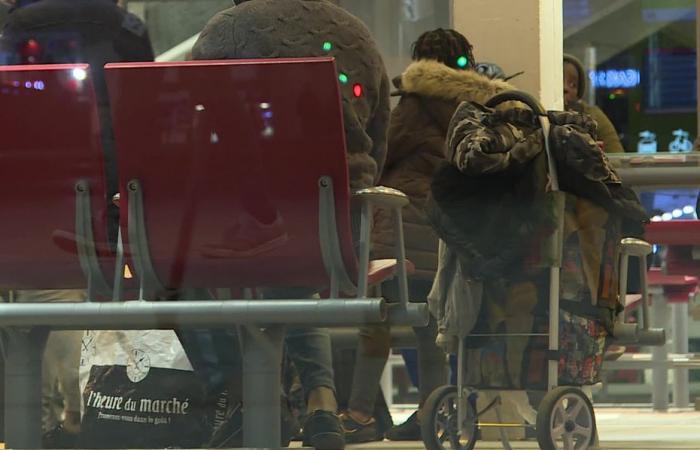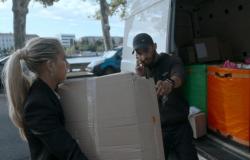On December 16, RESF 80 reported on the presence of several families on the street without accommodation in Amiens despite very low temperatures. The association accuses the prefecture of not assuming its responsibilities towards them.
Company
From daily life to major issues, discover the subjects that make up local society, such as justice, education, health and family.
France Télévisions uses your email address to send you the “Society” newsletter. You can unsubscribe at any time via the link at the bottom of this newsletter. Our privacy policy
It is in the city center of Amiens, near the train station, that volunteers from the RESF 80 association (Education Without Borders Network) met several families on the street on Friday 13th and the weekend of December 14th and 15th. Among them, six children and two isolated mothers and around ten men without a solution to spend their nights warm. “It’s not normal for adults to sleep outside, but for children it’s unacceptable.“, protests Louis Pastoor, volunteer of the association. In which society do we put children on the street? In no culture, no religion, no philosophy!“
While RESF contacted 115 on Friday December 13 around 10:30 p.m. to find accommodation for its families in distress, they were told that they could not be taken care of. “115 agents are required to transmit the following message. ‘Unfortunately we don’t have any space. We are full.’ It’s not that they are full, it’s what we ask them to say because the prefecture which does not want to pay the additional €20 per person“, says Louis.
For its part, the prefecture indicates in a press release that it has not been informed of the presence of families on the street: “Maraudes are carried out every evening by the social SAMU with the aim of detecting the most precarious situations and reaching out to vulnerable groups. During the raids carried out in recent days, no woman with children was seen by the social SAMU.“
It also specifies that 50 additional places will be offered in the Somme, without specifying whether these will be places in day reception or emergency accommodation for the night.
Families would be well received during the day, but not at night according to Louis Pastoor. An aberration according to him: “It is very good that there are day receptions, moreover the new day reception which opened in Amiens generates a lot of public relations on the part of the prefect and the Apap, but this center is made to accommodate children of school age, so they are asked to sleep on concrete, at night, without protection and then in the morning, either they go to day care or they go to school if they are not too tired. We don’t need day care, it’s night time care. You don’t have to have left Saint-Cyr to know that“.
For him, it is a global context which tends to further complicate the reception of these people, most of whom are asylum seekers: “I don’t understand this hatred of foreigners that is taking hold in France. I don’t understand this hatred towards children“.
A volunteer for many years in Amiens associations, he has noticed an evolution in the relationship between volunteers and administrations: “Before, we had regular meetings with the OFII (French Office for Immigration and Integration) [ndlr : qui s’occupe des exilés] but, since Emmanuel Macron’s first five-year term, nothing“.
Maître Jean-Charles Homehr, public law lawyer, explains that: “it is the State which is competent in matters of emergency accommodation and the department has additional competence in the event of failure of the State“. Whatever the status of people in vulnerable situations, the State must offer them emergency accommodation, even if they are undocumented.
In law, the lack of space near 115 would not be a sufficient argument for leaving people on the street. “It is theory that confronts practice. I’m not saying that they don’t do everything they can to find places, but the 115 is one device among others. If that’s not enough, either we have to increase it, or we have to find something else, but that doesn’t exempt the State from its responsibility in terms of emergency accommodation.“
For the moment, RESF is still looking for a solution for its families who are still without accommodation.






